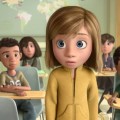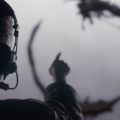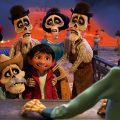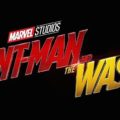Onward review
Another year, another Pixar movie, another review. Never mind that I missed Toy Story 4 last year.
Okay, so I’m cheating a little here. I missed the theatrical release that was one day before lockdown, but was subsequently bailed out by its VERY fast trip to Disney+.
As such I did not see the short before the movie. Perhaps it’s okay as it wasn’t the usual Pixar tech demo in preparation for their next feature, but instead the second The Simpson’s theatrical short featuring Maggie. Though the short is also on Disney+, I have not bothered to watch it yet. It’s not why you came here, anyway.
There is another Disney mega-empire connection, as the main characters are Marvel Cinematic Universe veterans. Younger brother Ian is voiced by Tom Holland, while older brother Barley is voiced by Chris Pratt (though the character design suggests the role was origionally intended for Jack Black).
Onward, then.

I think we have the Pixar formula figured out by now. Take an unusual setting, put the characters in a situation that emulates a life trauma a segment of the audience might have that also sets up the instigator for an adventure and resolve the plot with an emotionally cathartic moment, polish the hell out of all the details (which keeps the adults entertained) and make sure the actors are putting in a proper effort.
Onward executes this formula particularly well — but is docked points for an unnecessary “the liar revealed” bit in the second act that was entirely surpurflious because they brush it under the rug to set up a plot-mandated friendship failure In the third.
The setting sets this move apart. There isn’t much urban fantasy in animation (despite it being a fantastic medium for it) or in movies. The only other one I can even think of is Netflix’s Bright, which was far more urban than fantasy. Onward’s world looks much more like a place that actually was a high fantasy land that went through an industrial revolution instead of “Exactly like regular L.A., but some people are elves and orcs.”

The setting, of course, is the inspiration for all those little polished details. Their world’s New Classical architecture borrows from the middle-age castles rather than Greek and Roman edifices. The stop signs read “Halt” and the various household appliances are similar to what we use, but designed with the intent to replace and make accessible to the masses magical effects. The Dungeons & Dragons-like games are edutainment products based on their actual history and are closer to a Civil War reenactment than fantasy escapism.
The brothers at the heart of our story start with one shy and one brash, both as overcompensation to the tragic loss of their father that only the elder was old enough to remember. And when the youngest turns 16, he gets a long-in-waiting gift his father put together and set aside in his final days: the materials for a spell that would allow him to visit his grown sons for a single day in the hopes that one of them possessed the rare affinity for magic.
When the spell actually works, but is disrupted, the adventure begins as the brothers try to scrounge up extra materials to complete the spell and see their dad, if only for a short while. Hijinks and emotions naturally ensue. And along the way they inadvertently bring back a little bit of what was lost to modernity.
While it is, by the numbers, exactly what you expect from Pixar, it’s not such a bad thing. It’s a far better form of repetition than getting Cars 4.

Verdict: Go for it (4/5). If you would have paid $10 to see it in the theater anyway, you might as well pay $5 for a month of Disney+.





